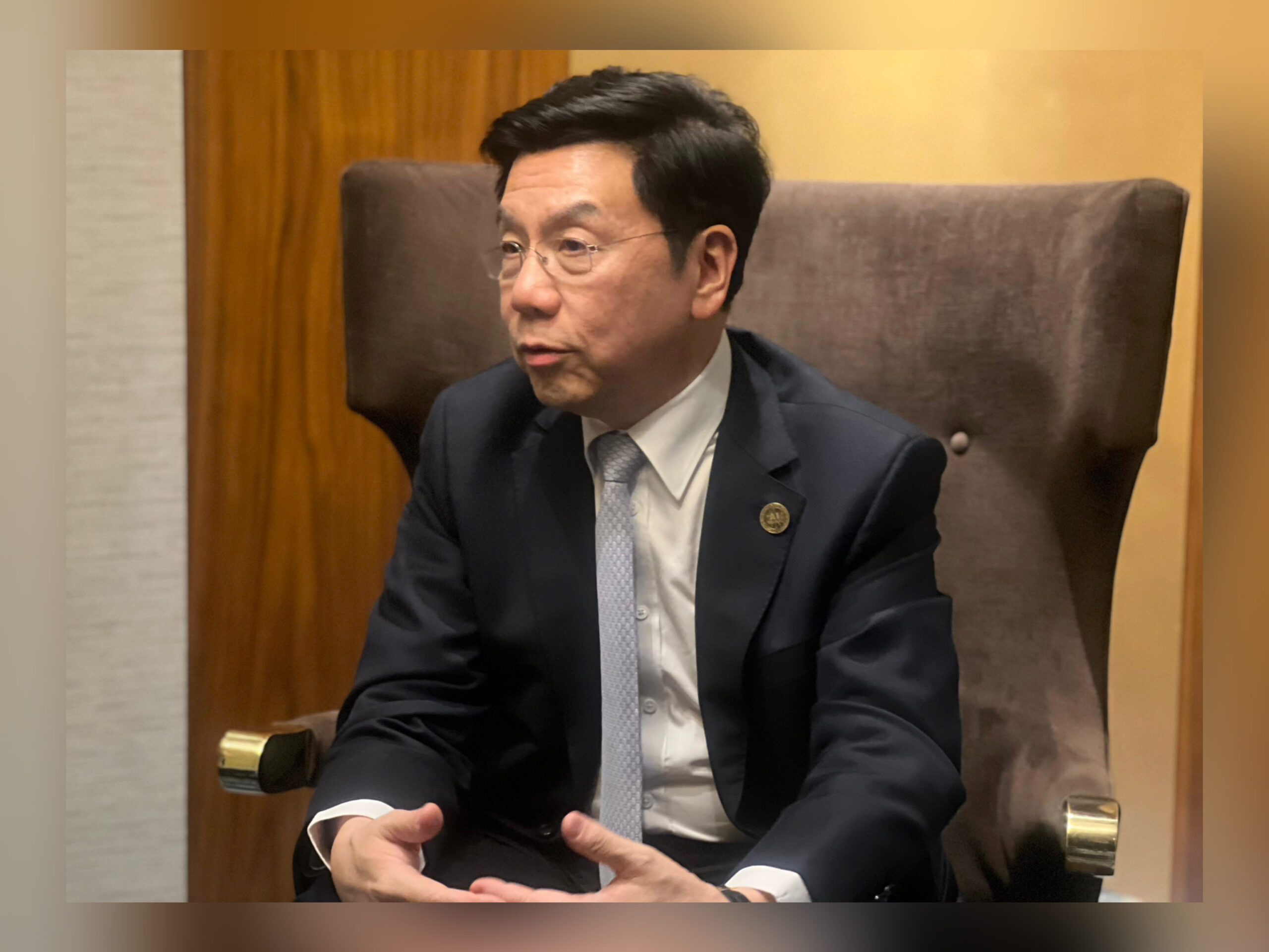By Anel Bersimbayev,Fatima Kemelova
Copyright astanatimes

ASTANA – Artificial intelligence pioneer Dr. Kai-Fu Lee, founder of Sinovation Ventures and author of “AI Superpowers: China, Silicon Valley, and the New World Order,” believes Kazakhstan stands at a historic crossroads as it seeks to become a Central Asian hub for AI innovation.
Building talent to lead the AI era
Lee emphasized that human capital is the most critical resource in the age of AI, urging Kazakhstan to focus on cultivating talent capable of building real-world applications.
“We are entering the golden period of building agents and applications. Focus on the people who can make great AI applications that add value, don’t go too broad and [don’t] miss the most important revolution in our lives,” said Lee, who visited Astana to attend the Digital Bridge 2025, the region’s largest tech event.
He compared today’s AI boom to the early days of mobile innovation when companies such as Instagram and TikTok transformed how people engaged with technology.
“When the mobile internet came, innovators didn’t waste time debating; they just built. The same urgency applies to AI today. Good MBAs and PhDs are always important, but now is the time to capture the moment, because that’s what will create value and bring the next ten unicorns,” said Lee.
Capturing a once-in-a-century opportunity
Discussing the upcoming launch of a dedicated research university in Kazakhstan focused on AI, Lee highlighted the importance of speed and focus.
“If the moment we want to capture is building applications, then universities should provide a broad education on AI tools and ensure that people can use them for their future development. Finding the right applications, creating the right products – product management, technology development, the AI-agent trend – these are the things we need instantly and urgently,” he said.
Lee compared the current stage of AI development to the emergence of the mobile internet in China, noting that decisive action and coordinated effort between investors, entrepreneurs, and governments led to the rise of billion-dollar tech companies.
“If China hadn’t built an ecosystem ready to seize the mobile internet revolution, there would be no ByteDance, Xiaomi, Pinduoduo, Meituan, Didi, or Kuaishou. These companies emerged because investors, entrepreneurs, and the government recognized that 3G and 4G would fundamentally change how people lived and worked on mobile, and they acted immediately. As a result, China rose from almost nothing to become the world’s second-largest digital economy,” he said.
He suggested that countries should seize the opportunity when it presents itself.
“So now, if any country, including Kazakhstan, wants to capture this new wave, we must realize that the stars are aligned: the models are ready, the markets are educated, the technology creates real business and economic value, and there is both capital and talent. When such a moment comes, you must run and seize it. There will not be another,” Lee said.
Learning from East and West, but acting fast
Lee, who spent decades bridging the tech ecosystems of Silicon Valley and China, offered a candid view of what Kazakhstan can learn from both models, explaining that China’s approach provides the most practical lessons for countries seeking to build sustainable innovation ecosystems.
“There are two aspects. One is who should be Kazakhstan’s teacher, and where do we learn from? For breakthrough technologies and semiconductors learned from the U.S. For engineering excellence, low-cost innovation, open source, and government policy – learn from China. The bridge to East and West is valuable, but when it comes to execution, I’ll be brutally honest: just learn from China. The U.S. has the brilliance of attracting the smartest people in the world and the capital to back them. No other country, including China, has that density of talent and money. So, the system built in the U.S. is basically unsuitable for other countries,” Lee said.
Lee noted that while the U.S. innovation system thrives independently of government intervention, other nations cannot afford such a luxury. For countries such as Kazakhstan, he said, strong policy leadership and deliberate coordination between talent, technology, and markets are critical to capturing the limited window of opportunity in AI.
“When there isn’t that massive density of brilliance and that massive capital, mistakes are unaffordable. The government must lead and align. When there is an exponential, growing opportunity and a limited window, the government must act, perhaps even unnaturally, to match technology with markets, entrepreneurs, and capital. Policies need to come from the top and be executed throughout, because resources are limited and the time window is short,” Kai-Fu Lee said.
Mentorship and ecosystem development
Drawing on his extensive experience investing in numerous startups, Lee said that early-stage ecosystems, such as those in Kazakhstan, need strong mentorship and structured guidance to effectively channel young talent.
“When technology is new and talent is young, experienced people must lead. In emerging ecosystems, mentorship is not optional; it’s a requirement,” he explained.
He recalled his own experience founding Sinovation Ventures in 2009, when many young Chinese founders lacked experience and expertise. “At first, I had to act as CEO for multiple startups. But they learned quickly, and soon the ecosystem matured. Kazakhstan can follow a similar trajectory,” he said.
Message to Kazakhstan’s youth
Lee concluded with an inspiring message for young innovators.
“Kazakhstan’s youth are extremely lucky to have a government that believes in AI and in them. Now is the time to shoot for the moon. Learn from the best, from American and Chinese entrepreneurs, and don’t be afraid to imitate and improve. Integration is not shameful; it’s efficient. This is your moment. The stars are aligned: talent, leadership, and opportunity. Make bold goals and go for them,” he said.
Lee’s message to Kazakhstan is clear: move fast, focus on applications, and lead through coordinated action. By seizing the AI moment through education, policy, and mentorship, Kazakhstan can position itself not just as a participant in the global AI race but as one of its regional leaders.